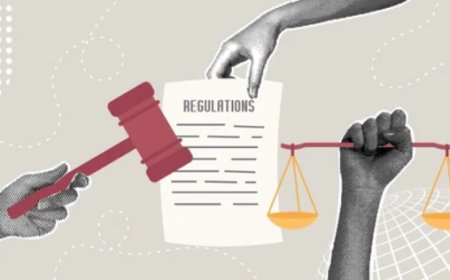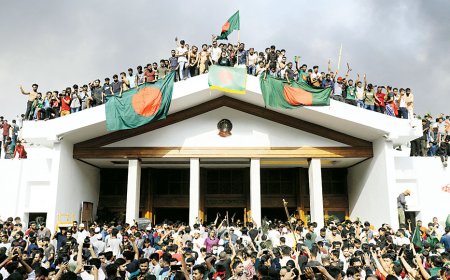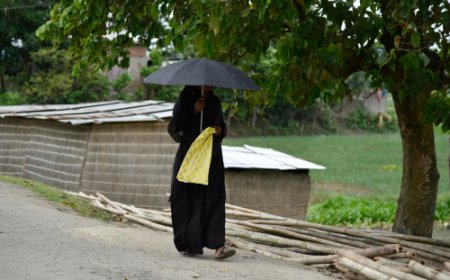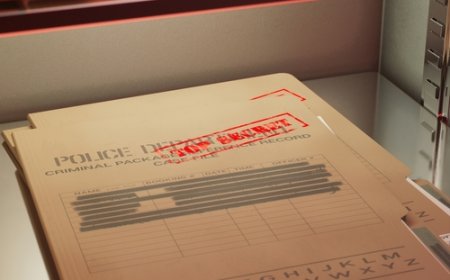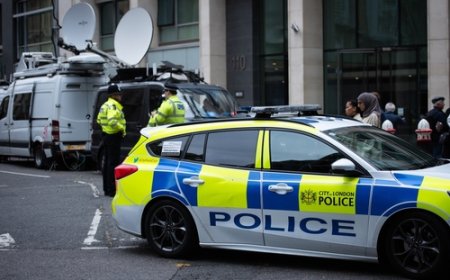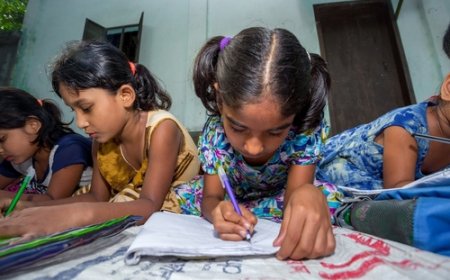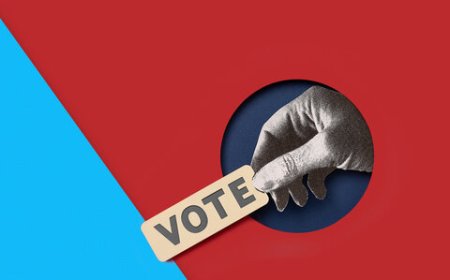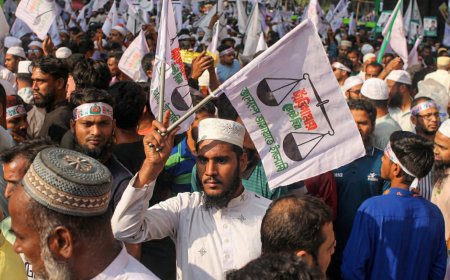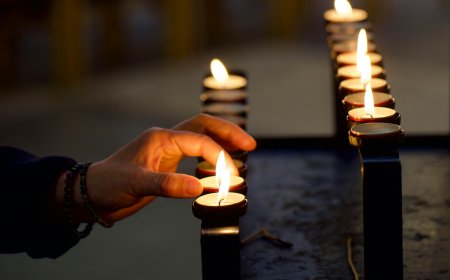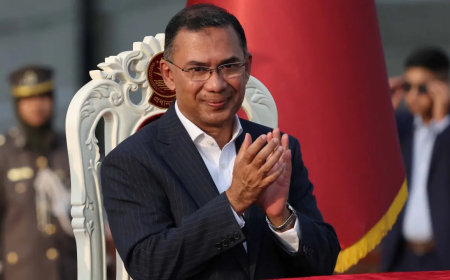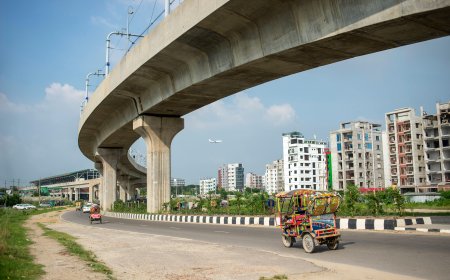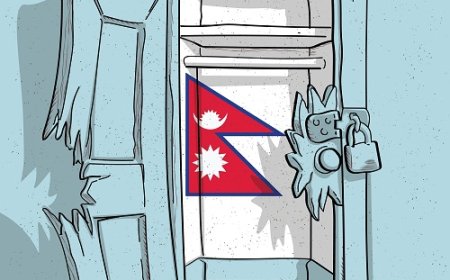Awami League's New York Folly Points to a Deeper Problem
While this kind of hooliganism is shameful and unacceptable, this was not the first egg-throwing incident on foreign land by Bangladeshi political activists, nor will it be the last

Judging by newspaper headlines and the torrent of comments on social media platforms in recent days, one could be forgiven for thinking a political earthquake had hit Bangladesh. Something unprecedented, something way out of character, something that flies in the face of the nation’s political norms and cultural values.
But it was a far less dramatic, and not too uncommon, an incident.
Eggs were thrown at a leader of the National Citizens Party when he and other political luminaries from BNP and Jamaat-e-Islami walked out of JFK international airport in New York on September 22. The culprits were local activists of the Awami League (whose activities in the US are not banned, unlike in Bangladesh.)
A day after the incident, these slogan-shouters and egg-throwers were branded “terrorists” by a Bangladeshi government official on a YouTube talkshow hosted from New York (ah yes, if only Al Qaeda and Islamic State knew how to conduct such proper terrorism, by throwing eggs instead of chopping heads).
The interim government’s condemnation of the egg attack in New York was expected. The politicians had travelled to the US on state expense. Initially, it was assumed they were part of the government’s UN delegation, but later it turned out they had little or no part in Chief Adviser Muhammad Yunus’s programs at the UN.
One of the stated reasons why many people found the egg-throwing incident unacceptable was that it “embarrassed” Bangladesh in the eyes of the American people. One YouTube presenter said he was “ashamed.”
Such reactions are quite normal. It is perfectly sane to be repelled by behaviour that oversteps the boundary of civility.
But the problem runs much deeper than an Awami League folly in New York.
The problem points to the lack of civility in the country’s political culture which has been imported by expatriate Bangladeshis into their new countries of residence.
While this kind of hooliganism is shameful and unacceptable, in point of fact, this was not the first egg-throwing incident on foreign land by Bangladeshi political activists, nor will it be the last.
During former prime minister Sheikh Hasina’s frequent visits to London, the UK branches of BNP and Jamaat-e-Islami routinely protested outside her hotel or the High Commission. Eggs and bottles were often thrown at her motorcade or on the pavement of the hotel where she was staying.
In one particularly worrisome incident in February 2018, activists of the BNP broke into the Bangladesh High Commission office in London, and vandalized photos of the prime minister and founding leader of the country, Sheikh Mujibur Rahman.
Breach of the country’s diplomatic premises by vandals -- not terrorists, pure vandals -- raised a security concern. But it did not generate “embarrassment,” nor did anyone hang their head in shame. It was almost as if that is what Bangladeshis do.
If Bangladeshi migrants had come from a country where political parties and their supporters followed democratic norms and practices in their daily lives, and if the country had a tolerant political culture and respect for the rule of law, then this current display of moral revulsion would have made sense.
But the reality is quite the opposite.
Political parties in Bangladesh do not live by democratic norms, nor is there a culture of tolerance and civility in the nation’s politics. Revenge plays a key part in motivating much political activism. Unlawful or even outright criminal actions by one faction is explained away or even justified by pointing to similar or even graver acts of indiscretion by rival factions.
The tragedy for Bangladesh is that, it did not have to be this way.
In a very short time, the country has gone through several stages of political change. Each episode offered an opportunity to correct course and return to the democratic aspirations of 1971. But each time the opportunity was spurned and political actors dug deeper into revisionism and revanchism.
Bangladeshi political culture, as the interim government has rightly pointed out in its statement, is “toxic and violent.” But the statement then regressed into the revisionist and revanchist mode that has become the hallmark of this government, by blaming “Hasina’s regime” for the flourishing of such a culture.
Bangladesh was born through mass movements and a full-scale war. But the founding fathers did initially chart a Westminster-style system of democratic governance. But toxicity had entered the blood of the body-politic, and the nation lost its way.The toxic and violent political culture that the interim regime’s statement spoke of was nurtured through the decades, by every government.
The biggest opportunity to change course came in 1991 when the country was awash with optimism. But it was not to be.
Similar opportunity came in 2009 when Hasina returned to power with an unprecedented majority in parliament. But she buried the goodwill in a heap of corruption, abuse of power, rigged elections, and drift to authoritarianism.
The overthrow of Sheikh Hasina last year created yet another chance. The interim government in its statement said they were “firmly committed” to dismantle Hasina’s legacy and “build a peaceful, democratic and inclusive Bangladesh.” Fine words, but rather hollow, as it turns out.
The past year has been characterized by some extreme form of revenge-seeking, much of which the interim government could have prevented if it had the will. It chose not to, thus allowing the “toxic and violent” political culture to further deepen under the Yunus government.
In the meantime, the bitter rivalry between the AL and the BNP somehow managed to teleport itself to foreign lands. London and New York became the hub of Bangladeshi politics with all its toxicity.
The irony of the situation cannot be lost on people.
Bangladeshis migrate to the UK and US in search of a better life. Their new countries offer better employment or business opportunities without the pressure of bribery and extortion; better education and brighter future for their children; social peace with rule of law applied equally to all; a democratic, tolerant political culture where norms and rules are paramount. These are some of the benefits which draw immigrants of all nationalities and religion to Western democracies rooted in Christian values.
Life in the UK or the US is far removed from the toxicity of the country migrants from Bangladesh left behind. Yet, instead of engaging with the new countries’ political process and immersing themselves into the local culture of tolerance, many migrant Bangladeshis choose to recreate the same toxic political culture in their communities.
It is not uncommon -- nor undemocratic -- for immigrant communities to stage protests against governments of their country of origin. These are often done by refugees who were forced to leave home due to wars such as those in the Horn of Africa or revolutions such as the Cuban or Iranian revolutions.
But Bangladesh has not been in the throes of civil war, nor has there been a revolution which resulted in the expulsion of a significant number of people. The Bangladeshi communities in the UK and US are essentially economic migrants.
It would be perfectly normal for Bangladeshis abroad to continue to engage with politics back home. But it would make even more sense if they conducted their politics by following the norms and practices of their adopted new home.
Egg-throwing would not disappear in that scenario. But at the very least, the rival supporters would learn not to harass visiting delegations from home, and show respect to rivals, rather than continue to harbour a desire for revenge.
What's Your Reaction?







